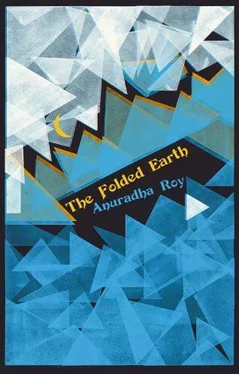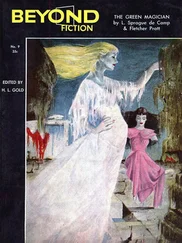“That’s a noble thought,” Diwan Sahib had said, and then waved his arm around his shabby living room. “Not much your brigadiers and generals would want for their museums among this shambles, you know.”
“But that is exactly where you’re wrong, Diwan Sahib!” The General had pounced in triumph. It was the Diwan, more than anyone else, who possessed what truly belonged to the entire nation. Historical documents. Letters to do with the accession of Surajgarh to India. Minutes of meetings between the Nawab of Surajgarh and officials of the Indian government. Diwan Sahib’s own old diaries, appointment books, and manuscripts. And of course, Nehru’s letters, and Edwina’s. The General had tacked this on almost as an afterthought, and hinted at the danger of such sensitive letters falling into the wrong hands — then being used to score grubby political points. It was the Diwan’s duty, the General said, to hand over what he had.
Hearing the word “duty”, Diwan Sahib confessed, he had lost his temper. “I told the General a thing or two. There was a time when I was important for the Army, because they knew I had friends in high places. Even the General then — I recall him as a Colonel, then a Brigadier — was forever calling on me, pumping me for information, begging me to put in a word for him here and there. Now he’s back because he wants my papers. But in between? His army did not think it fit to trust me with anything. Maulana Bhashani was here for weeks on end and I had no idea. Apparently the ex-Diwan of Kashmir took refuge here for a time and I was never told. They forgot me as a has-been, an irrelevant old fool, and now they’re preaching at me to do my duty. I had to press my lips together to stop myself laughing at his continued peevishness over that same little thing. I frowned hard in an effort to appear as outraged as he was.
“Anyway, when I calmed down,” Diwan Sahib continued, “I was almost persuaded. Then he played his trump card. What a fool! Well-meaning, but a fool. Do you know what he hinted at after much humming and hawing? He had been given to understand , he said, by the highest authorities — not that he expected this would influence me in the least — that a gift of the letters might ease the way for renewing the Light House’s lease from the Army.”
Diwan Sahib’s laughter made him choke on his rum and I ran to him to thump his shoulders. “Whatever next? Maybe they’ll offer me a full military funeral too as a reward. A twenty-one gun salute when I join Corbett in his happy hunting grounds, provided I hand over his papers too?” he wheezed, smiling through his spasms. “Some people can’t wait for that to happen. But you have to admire the man’s sense of public purpose. At his age, soldiering on to serve the Army still! Would you care, Maya, in your early hundreds? I don’t give a damn even at my youthful eighty-seven what happens to the nation. As long as the nation leaves me in peace, that ass Chauhan can destroy it at leisure for all I care.”
One week later, what Miss Wilson and the whole school feared came to pass. Umed Singh had come back to campaign and had begun in the market, at the marquee where the Baba now held court several days a week. Many of the politician’s henchmen spoke before him. Bhajans were sung, set to the tune of popular movie songs. When the main man stood up to speak, all chatter stopped. He began with municipal issues, then went on to the environment, and then to religion: “Why doesn’t the government subsidise pilgrimages to Deo Bhoomi to help the hill economy? These hills are the abode of Hindu gods, and India is the Hindus’ last refuge in a new world order dominated by Islamic terrorism and Christian missionaries. There is soft war and there is hard war.” Here Umed Singh paused for a long while before continuing, “While the Taliban plans attacks on our cities with bombs and guns, the pure, untouched tribal parts of India are being bombed by Bibles.” From there Umed Singh went on to the threats Hindus faced worldwide. They were in danger of being wiped out, decimated, outnumbered, converted. From this to the conversions at St Hilda’s was but a step. “The threat is here, in this very town. It has to be investigated.”
They rushed to their motorbikes and cars and roared off in a procession. The politician had told the crowds that there were deaf-mute students whom the school had converted into Christian dancing girls, and they played hymns at the factory all day: “We must find out for ourselves what the truth about all this is.”
The cavalcade went to the school in the bazaar first, but it was a holiday. Without students, it was no more than a hill cottage with bright red tin roofs and ochre walls, all its blue doors and windows locked. It stood on a patch of earth drummed by children’s feet into a square of dust, which was being swept by our chowkidar, who gaped speechless at the campaigners’ cavalcade. The politician and his henchmen turned away disappointed. Then they remembered the factory. Their cars and motorbikes sped away towards the cantonment.
From up the hill, one of the girls working in the factory heard the noise of the motorbikes and ran out to see what was happening. I was sitting at a desk in the inner room, punching numbers into a calculator, with half an ear towards the Hindi version of “Swing Low Sweet Chariot”, which had just started playing on our tape recorder. I was adding up columns of expenses, trying to work on the figures so that they made sense for our annual report. In the outer room, half a dozen girls were fixing labels onto the hundreds of bottles of apricot, peach, and plum jam we had made that summer. The labels, which were printed in Delhi, had arrived late, and we were in a hurry now to get the bottles ready for despatch. I had asked for workers — anyone possible. Beena and Mitu came every day, and sat working for hours, getting up only to munch roasted peanuts at times, or to make tea and stretch aching shoulders.
I heard the music change and pushed my papers aside to get up and reprimand the girls. It was really too much, the way they flouted my authority. They had started a song from a film featuring a girl lost to promiscuity and drugs because of befriending hippies. Her brother in the film scoured the country for her and after many diversions, located her somewhere near Darjeeling, dancing with other hippies, to a song she sang through lips that were renowned for being the Sexiest of the Seventies. The song had a mesmeric, incantatory melody. It was an old song by the time even I came to it, but it still played at college parties Michael and I went to. Now it had been remixed and was pepped up with a thumping beat. I returned to my chair and sat down. My feet, which had travelled away to a dance floor of my memories, tapped in time to the rhythm of Dum Maro Dum . Michael’s hands were on my waist, he was whirling me round the room. I was saying, “You’re making me dizzy,” and he was saying, “That’s exactly what I want to do.”
Umed Singh and his cohorts reached the factory and found a roomful of girls hard at work. Beena and Mitu had just made tea and in a shy show of hospitality, were smiling and nodding to the visitors, pointing at the row of little glasses on their tray. I recognised Deepak in the group, and the man who was with him when Miss Wilson tried to get them to take their cars away from the school playground all those months ago. The second man was short and thickset, with a weightlifter’s shoulders. He kept his reflecting glasses on, even inside the room, and turned them towards the twins when one of them bent over him with the tea tray and the other brought around the glucose biscuits. The reflections on his glasses followed the girls about as they took the tray from person to person. The other girls did their Namastes and returned to work, suppressing giggles of complicity. The song continued to play. Its refrain was “Harey Krishna Harey Ram”. Umed Singh left disappointed. His henchmen followed, pretending they had come for a regular canvassing visit rather than to catch us out playing “missionary hymns”. Despite the drugged, seductive voice of the singer, they could not deny that the singer was chanting the names of two of the holiest Hindu gods.
Читать дальше












